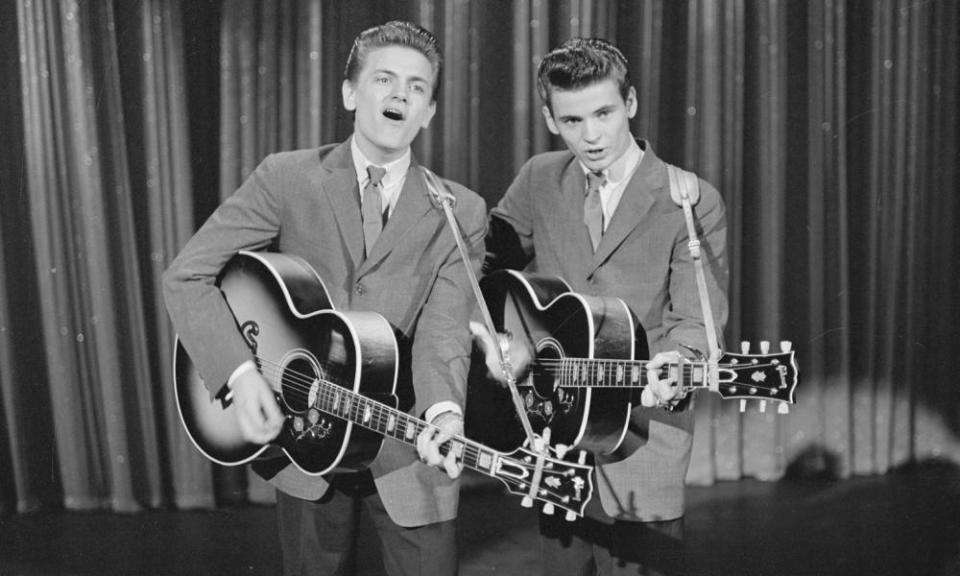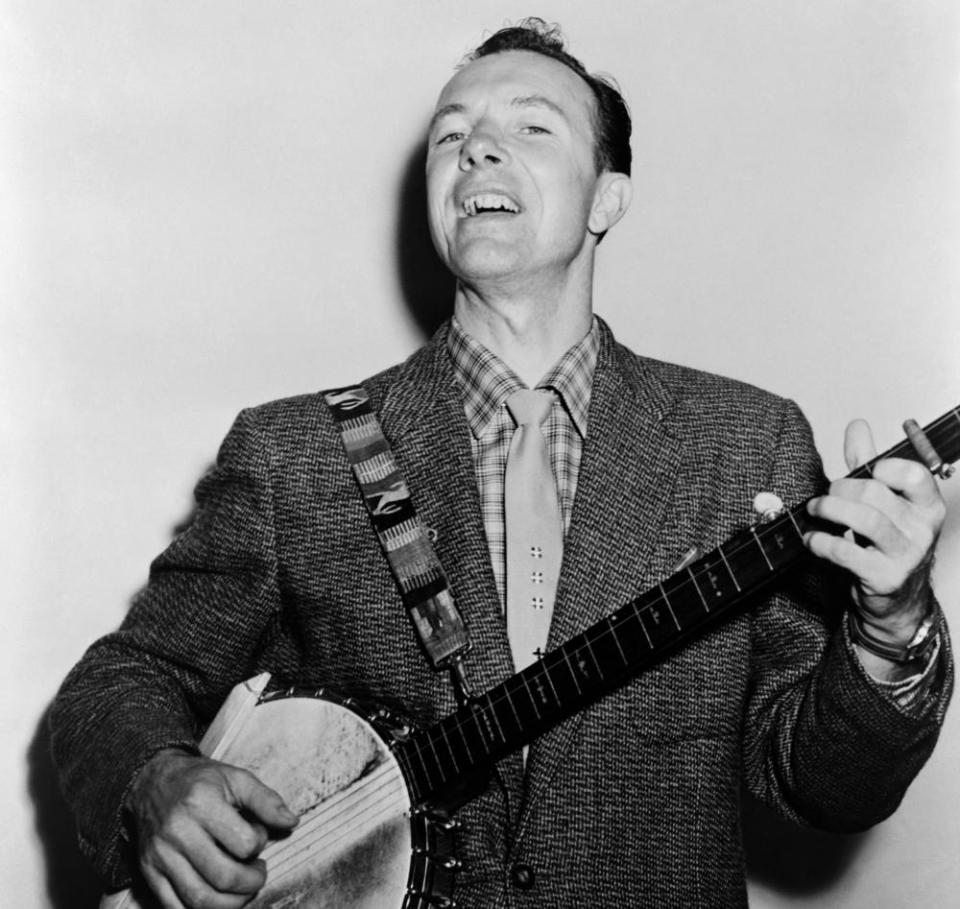Neil Diamond's teenage obsessions: 'The Brooklyn Dodgers betrayed me and broke my heart'
Brooklyn Dodgers
I was born and raised in Brooklyn, and for me the most important aspect of growing up there was the Dodgers baseball team. Everybody in Brooklyn loved the Dodgers. They were the underdog but we were loyal. I followed the games closely, with dreams that they would win the World Series and be recognised as the champions I knew they were.
That day finally came in 1955 when I was 14. The Dodgers won the World Series! We shouted from the windows of our apartment and Brooklynites filled the streets in celebration, but it was short-lived. Just about the worst thing that could possibly happen to a 14-year-old boy happened: after their big win, the Brooklyn Dodgers had the audacity to turn their backs on us loyal fans, move to California and become the Los Angeles Dodgers. I felt betrayed. My heart was broken and I went into a teenage depression. My parents were so worried about me they knew they had to do something to help me out of my slump. They bought me my first guitar for $10 and paid it off a dollar a week. I picked up that guitar and my life was for ever changed. Thank goodness the Dodgers left Brooklyn and broke my heart because otherwise I may never have picked up a guitar.
Hit Parader magazine
When I was a teenager, Hit Parader brought all the newest music and lyrics to us anxious kids who followed the musical developments of the day. Memorising those lyrics was the beginning of my education in music, and I sang along with them while I worked at my parent’s little haberdashery shop. Music poured out of every nook and cranny of the New York streets I grew up on. Without Hit Parader I would have felt lost. Sixty years later, every now and then my wife surprises me with old issues she finds on the internet – it brings me right back to the floor of my tiny bedroom in our apartment, where I’d absorb all those lyrics and photos and details. Kids today can find lyrics to any song with the press of a button – they’ll never know the thrill of waiting anxiously and finally receiving that gift in the mailbox.
The Everly Brothers

When I was around 15 or 16 I used to rush home from school and run down to the basement to listen to my Everly Brothers records. I would sing along to songs such as Bye Bye Love, All I Have To Do is Dream and Wake Up Little Susie. The Everly Brothers popularised the two-part harmony song, which was different to anything else we heard on the radio. It wasn’t rock’n’roll and it wasn’t country music – it was the purest two-part harmony you ever heard, and I loved it just like the other kids of my generation. They inspired everybody: the Beatles, Simon and Garfunkel and many that came after them.
Pete Seeger

When I was 16, I was a working camper at Surprise Lake Camp, a youth sleepaway camp in the Catskill mountains of upstate New York. One winter, the working campers were invited for a weekend of our own there. There were about 15 of us; I remember trying to keep warm by a big fire. Pete Seeger lived nearby and showed up at the camp with his banjo. He sang some of his wonderful songs for us and talked to us kids about writing songs. Then he asked if any campers wanted to sing a song of their own. One of the girls had written one and sang it for Pete. It was at that moment, between Pete singing his own songs and one of my peers writing and singing an original song that I realised that maybe I could write one. It had never occurred to me before. When I got home, I picked up my guitar and started to write.
Pete Seeger’s folk music and activism moved me. He was part of the Weavers, who brought an American folk music revival to the mainstream – those songs were an important part of my musical development, and I still play their songs on my guitar. When I was just starting to have some success, I was out at a restaurant and saw Pete. I did something I always said I’d never do: I approached him while he was eating. He had no idea who I was. I introduced myself and said: “I love you, Pete.” He was as kind and warm as could be. I always try to remember that interaction and how it made me feel when I am approached by real fans.
Dancing
We lived a very simple and unadorned life, but it was happy and full of love. My parents couldn’t really afford to go to the dance clubs so they danced at home. Dad would put a record on the hi-fi and he and my mom would laugh and dance the night away. They’d host their friends at our house and soon our little basement was like an underground dance club. My mother was very stylish and always dressed beautifully with a big flower in her hair. There were lots of cha-cha-chas and mambos while my little brother and I would watch from the stairs in awe. My dad would sometimes dress up as different characters and lip sync to opera records to the absolute delight of their guests. He was a wonderful performer.
Pretty soon I was mimicking my dad and entertaining their guests, dancing along. I even got up enough nerve to sing once or twice, never imagining that one day I would be doing it professionally. Eventually, my brother and I were allowed to invite our own friends to the dances and we’d all dance together. I think it might have kept us out of trouble while other kids were hanging out in the streets. Those are wonderful memories etched into my mind. I still love to dance whenever I can.
The beach
When I was about 14, my family moved from an upstairs apartment on the busy Church Avenue in Flatbush, Brooklyn, to a house on a quiet street in Brighton Beach, also in Brooklyn. Our little bungalow was steps away from the sand and right next to Coney Island, with a boardwalk maybe similar to Blackpool with food booths, games and rides. It was also the home of Nathan’s Famous Hot Dogs, which I loved.
The beach was a great equaliser. You didn’t have to be rich to swim in the water and experience the freedom from the clutter of the city. The kids from the “nice” part of town swam and sat on the beach shoulder to shoulder with the kids from my side of the tracks. It was a great place to meet up with my friends, take girls on dates or just relax and clear my head. There was nothing better than being a teenager with an all-access pass to the beach.
My parents loved the water too. My father took 8mm home videos of us swimming or horsing around on the sand, always with big smiles on our faces. I’m sure it has inspired me in ways I don’t even know – it allowed me to open my mind and not always be so serious. As an adult, I still carry that image of myself on the beach as a young man.
• The album Classic Diamonds: Neil Diamond With the London Symphony Orchestra is released 20 November on EMI Records

 Yahoo News
Yahoo News 
